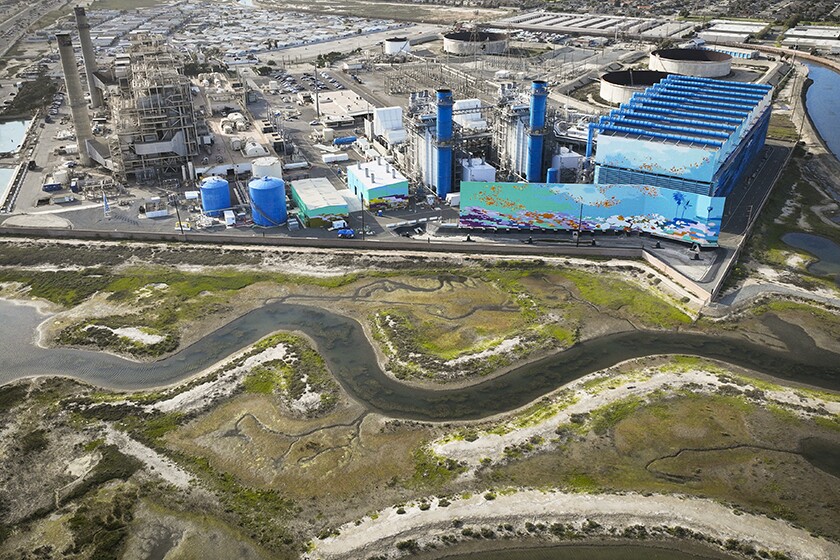Ten years ago, many Californians could not have imagined the climate nightmare we are living today — dark orange skies during wildfire season, heat waves in the dead of winter, mandatory water restrictions amid crippling drought.
Without urgent action, we may well look back on this moment as the calm before the storm. Over the course of the next decade, California’s biggest climate challenges — hotter summers, a shorter rainy season and more destructive wildfires — could double in intensity.
It’s against this backdrop that the California Air Resources Board (CARB) last week released a draft of our state’s scoping plan, a blueprint for combating climate change that will guide California’s policy for years. Despite the stakes for Californians, and although my research indicates the state could actually become carbon negative by 2030, the draft proposal would delay reaching carbon neutral until 2045. The barriers to a target of 2030 are political, not technical.
The draft plan calls for investment in new fossil fuel electricity resources, and it relies on unproven and costly carbon capture technologies that would lock in fossil fuel pollution. Adopting this approach would be lazy, nonsensical and racially unjust. During the current 45-day period for public review of the plan, California has the chance to choose a smarter path.

The Huntington Beach Generating Station includes a natural gas generator that began operation in 2020.
Renewable energy, even when coupled with energy storage, is cheaper than fossil fuels. California’s own state laws say that renewable energy must be prioritized before building out expensive and polluting gas power plants. Instead, California must set ambitious targets that immediately cut pollution through no-regrets strategies.
If we fall short of the climate action that science demands, Californians, and especially lower-income Californians and communities of color, will pay the price. What’s more, we could see this failed model replicated across other states and nations. It’s not hyperbole to say billions of people could be worse off if California fails to lead.
By the same token, if our state sets an ambitious but achievable goal — like carbon neutrality by 2030 or 2035 — the benefits ripple widely. Other states and nations are looking to California. If we set an ambitious target and focus future policy toward meeting it, others are more likely to adapt as well. Even when climate goals are not reached, they keep policies and investments moving in the right direction.
Last summer, when he directed CARB to examine accelerating California’s climate targets to 2035 or sooner, Gov. Gavin Newsom said “science demands we do more.” Having just announced a historic $32-billion investment in climate programs over the next five years, he must now step in and ensure that regulators live up to his call to increase climate ambition across the board.
To get this planning process back on track, regulators must start by correcting the flawed methodology that is the underpinning of their current proposal. CARB’s economic and jobs modeling fails to incorporate both the true cost of delaying emissions reductions and the full health and societal benefits from more ambitious emissions reductions. Put simply, California can create more jobs and more prosperity with renewables than we can with fossil fuels.
In developing the scoping plan, CARB staff used a measure called the social cost of carbon, which puts a dollar value on the damages created by additional greenhouse gas emissions. The problem is, these estimates vastly underestimated the costs of delaying climate action.
If we don’t begin to rapidly reduce fossil fuel pollution, the impacts on California’s healthcare system, our economy, our food supply and our communities will be orders of magnitude greater than what CARB has accounted for. Regulators can correct this by aligning with experts’ latest analysis, which calculates the true social cost of carbon at $50 per ton of pollution emitted.
As a next step, regulators need to acknowledge it is far too late in the game to gamble our state’s future on unproven carbon capture technologies that may never materialize. CARB’s draft scoping plan projects that California will use 100 million metric tons (MMT) of direct air capture in 2045. Globally, only 0.01 MMT of annual direct air capture is happening today. It is unrealistic to assume we can scale up this technology so much overnight, and foolish to direct investment to unproven experiments when affordable natural carbon removal solutions like composting and tree-planting are readily available now.
We have affordable renewable energy technologies available today that not only cut carbon emissions but also tackle our state’s air pollution crisis. California’s scoping plan should mobilize a vast expansion of renewable energy technologies. Instead, the current proposal calls for 10 gigawatts of new natural gas generating capacity — the equivalent of 33 large new gas plants.
There is still time for CARB and Newsom to deliver a bold climate blueprint that centers equity and public health and focuses on a no-regrets approach of renewable energy investment. It’s California’s legacy and lives around the world that are at stake. We cannot afford to fall short.
Daniel Kammen is a professor of sustainability at UC Berkeley. He is a former coordinating author of the Intergovernmental Panel on Climate Change (IPCC), Kammen in currently serving in the Biden-Harris Administration as Senior Advisor for Energy & Innovation at the U.S. Agency for International Development (USAID)